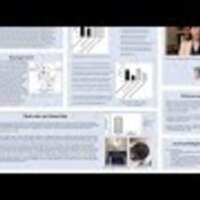Browse Exhibits (1 total)
Isabelle Wright | Olfactory Recognition in Brain Glycogen Knockout Mice

Glucose stored in the brain as the branched polysaccharide glycogen has been reported to play a role in associative learning. The effect of brain glycogen levels on sensory learning in mus musculus is rarely studied and, as a model species for human studies, has implications for learning in people, especially those experiencing low glucose availability to the brain. Wild-type mice and mice without brain glycogen were allowed to investigate the scent of a fruit juice for 5 minutes after a habituation period. Twenty-four hours later, the mice were allowed to investigate the scent of the same juice or a novel juice. The amount of time the mouse spent “exploring” the scent was measured on both days, and the times were compared between genotypes with the hypothesis that wild type mice would spend less time than knockout mice on a familiar scent 24 hours later. However, analysis of this data shows similar results between the two genotypes, implying that brain glycogen may not have a significant impact on sensory learning. When compiled with other behavioral studies with brain glycogen variables, this study improves understanding of the importance of mammalian brain glycogen levels for behavioral learning.
Faculty Mentor: Bartholomew A. Pederson
Biology
Undergraduate
Honors College
